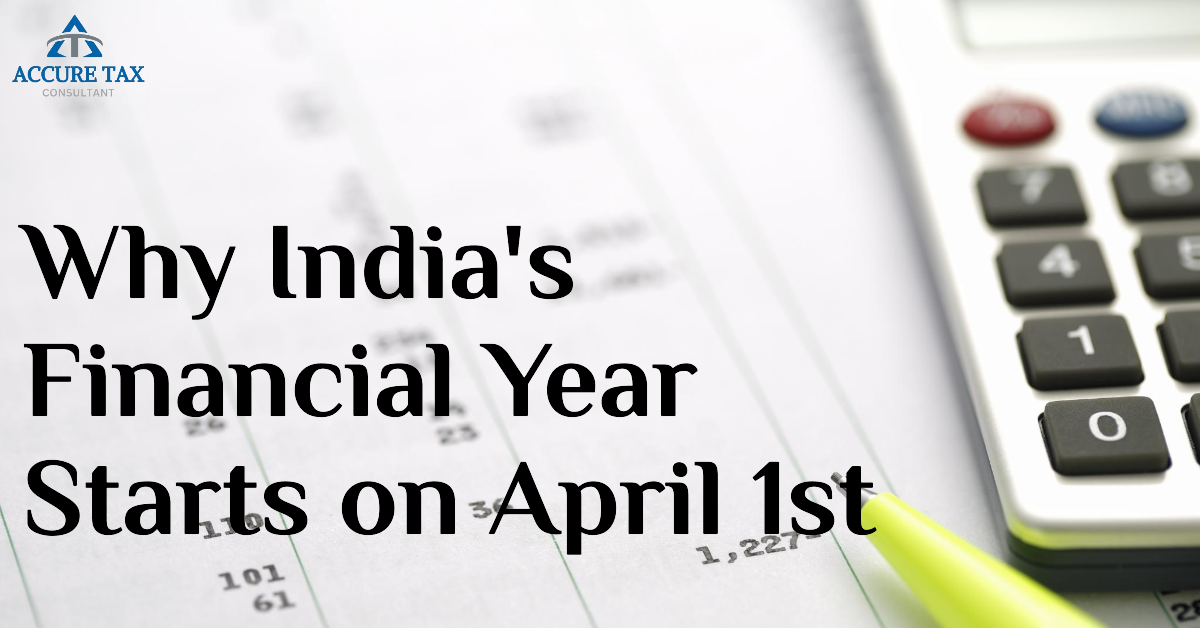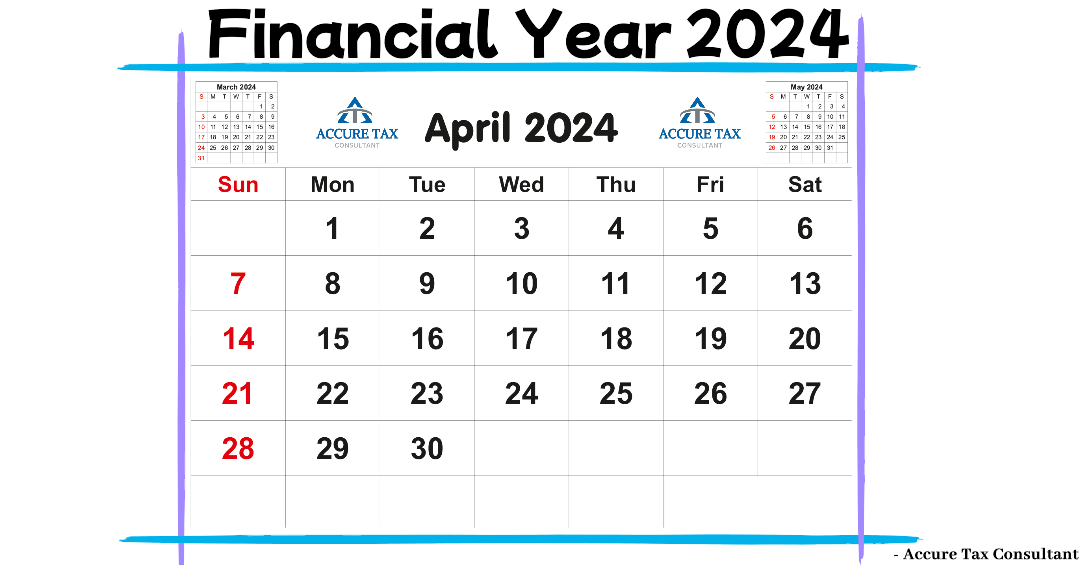There are 4 reasons Why India’s Financial Year Begins on April 1st.

Here at Accure Tax Consultant, we often encounter questions from our clients about the peculiarities of India’s financial system, particularly regarding why the financial year starts on April 1st. As experts in tax and financial matters, we understand the importance of clarity and insight when it comes to navigating India’s regulatory landscape. In this blog post, we delve into the historical, economic, and cultural reasons behind India’s unique financial year start date and its implications for businesses, especially those in New Delhi, India.
To understand why India’s financial year begins on April 1st, we must look back into history. The roots of this practice can be traced back to the colonial era when India was under British rule. The British administration adopted April 1st as the start of the financial year to align it with the British calendar. This decision was primarily driven by administrative convenience and the need for uniformity across the British Empire.
Even after gaining independence in 1947, India chose to retain April 1st as the start of its financial year. This continuity reflects the enduring legacy of British colonial influence on India’s administrative and bureaucratic systems.
The choice of April 1st as the beginning of the financial year carries significant economic implications for businesses in New Delhi and across India. It allows for smooth transition and planning between financial years, enabling businesses to align their financial reporting and budgeting processes accordingly.
Moreover, India’s financial year start date is synchronized with global financial systems, facilitating easier comparison and analysis of economic data on an international scale. This alignment enhances India’s integration into the global economy and fosters greater investor confidence.
From a government perspective, the April 1st start date facilitates effective budgeting and fiscal planning. It provides policymakers with a clear timeline for formulating and implementing budgetary measures, thereby ensuring stability and continuity in economic policies.
In addition to its historical and economic underpinnings, the choice of April 1st as the start of the financial year also carries cultural and religious significance in India. April 1st marks the beginning of the new fiscal year as well as the start of the Hindu calendar year, known as “Vikram Samvat.” This cultural association adds a layer of significance to the financial year start date, resonating with the cultural fabric of the country.
Furthermore, April 1st often coincides with various festivals and auspicious occasions celebrated across India, signifying new beginnings and prosperity. By commencing the financial year on this date, India acknowledges and honors its rich cultural heritage while also fostering a sense of continuity and tradition.

Now, let’s delve into some statistics to shed light on India’s economic performance during the financial year. In recent years, India has emerged as one of the fastest-growing major economies in the world. According to data from the Reserve Bank of India (RBI) and the Central Statistical Office (CSO), India’s GDP growth rate has consistently hovered around 6-7% annually.
Additionally, India has made significant strides in fiscal management, with efforts to reduce the fiscal deficit and improve tax compliance. The implementation of Goods and Services Tax (GST) has streamlined the indirect tax system, leading to increased tax collections and revenue for the government.
It’s also worth considering how India’s financial year start date compares with that of other countries. While April 1st is common in several countries with historical ties to the British Empire, such as the United Kingdom and Australia, other nations have different start dates for their financial years. For example, the financial year in the United States begins on October 1st, reflecting the country’s unique historical and administrative context.
In conclusion, the choice of April 1st as the start of India’s financial year is rooted in a combination of historical, economic, and cultural factors. It serves as a testament to India’s colonial legacy, economic aspirations, and cultural heritage. For businesses in New Delhi and across India, understanding the significance of the financial year start date is essential for effective financial planning and compliance.
At Accure Tax Consultant, we are committed to providing our clients with expert guidance and support in navigating India’s complex tax and financial landscape. Whether you’re a small business owner or a multinational corporation, we’re here to help you optimize your financial strategies and achieve your business objectives. Get in touch with us today to learn more about our services and how we can assist you in achieving financial success.
Ready to optimize your financial strategies and achieve success? Call Now: +91 9911675998 and visit our website Accure Tax Consultant today for expert guidance tailored to your business needs. Let’s embark on a journey towards financial prosperity together. Reach out now!
India’s financial year begins on April 1st due to historical reasons, primarily stemming from British colonial influence and administrative convenience. It also aligns with the Hindu calendar year, adding cultural significance to the date.
The financial year start date impacts businesses in New Delhi by providing a clear timeline for financial planning, budgeting, and reporting. It ensures alignment with global financial systems and facilitates smoother operations for businesses operating in an international context.
India’s financial year start date has economic implications such as facilitating effective government budgeting, enhancing investor confidence through alignment with global financial systems, and enabling smoother transition between financial years for businesses.
India’s economic performance during the financial year, including GDP growth rates and fiscal deficit figures, can be compared with other countries to assess its standing in the global economy. While April 1st is common for some countries with historical ties to the British Empire, other nations may have different start dates for their financial years.
DISCOVER
PRODUCT
ADDRESS
RZF-110/1, 2nd Floor, Gali No- 40, Main 60 Fit Road, Upper Punjab National Bank, Sadh Nagar-II, Palam Colony, New Delhi -110045
Copyright © 2024 Accure Tax Consultant.